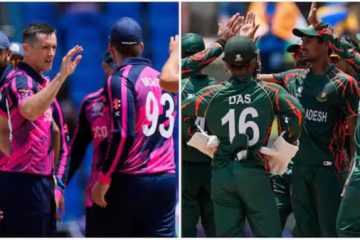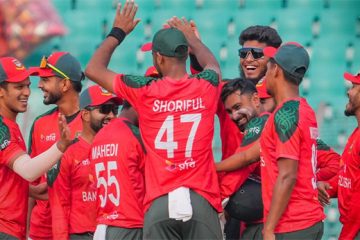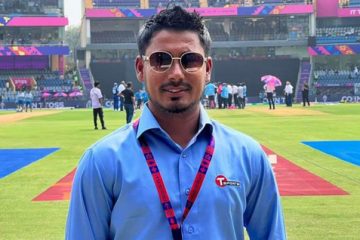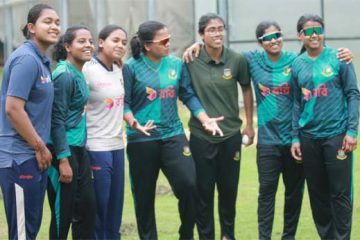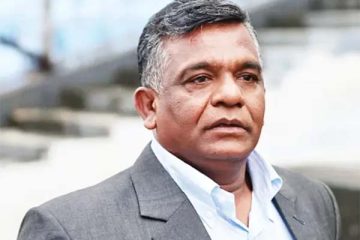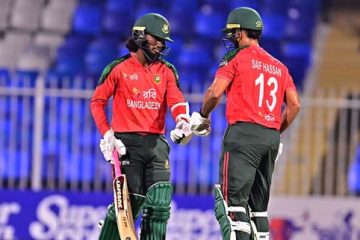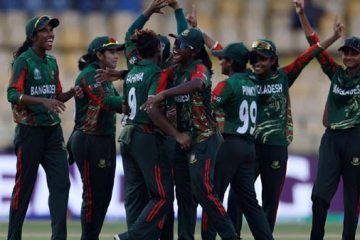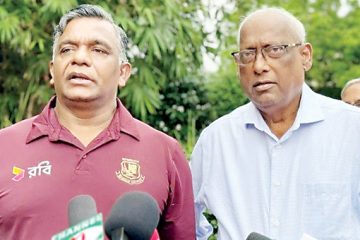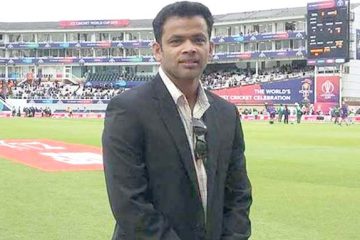says Fountain
Julien Fountain, the newly-appointed fielding coach of Bangladesh, has spent his first week in charge when he attended the practice session of the national cricketers at Mirpur. Fountain shared his first-hand experience in an interview with New Age’s Atif Azam at a city hotel on Friday.
Q: How are you getting accustomed to your new job?
JF: It’s good, coming to a new country from the UK. Obviously it’s quite hot and I am trying to get accustomed to the weather but you know I have spent a lot of time in hot countries coaching anyway, so heat is not a problem. It’s been great so far.
Q: What is your preliminary impression of Bangladesh as a fielding side?
JF: I can’t make a judgment as I have been here just for a week, but from what I have seen I can say that they are young, keen and they move well and it is the first step in the long journey. I am confident they are going to perform very, very well.
Q: What lacking you have identified in Bangladeshi players over the last few days?
JF: I am not looking for any lacking at the moment and it’s too early to say they haven’t got this or that. All I am doing is giving them small pieces of information, lots of small pieces of information and when they put them together we go forward. Each player is different to others and each player has different skills. I am trying to see how skilful they are.
Q: Do you think Bangladesh are any different to any other Asian countries as far as fielding is concerned?
JF: My experience says many countries, not just the Asians, have a culture for batting and bowling and fielding remains poorly attended. In Asia, due to weather and surface the players tend to shy away from fielding but Sri Lanka broke that mould years ago and they made fielding top priority and I think it’s not insurmountable.
Q: Why do you think Australia and South Africa have such a remarkable fielding standard?
JF: This is really an interesting topic and this is a question I am being asked regularly. Probably there are lots of reasons. One of the reasons maybe they like to play physical game and are very happy to hit the grass and dive on the floor as rugby is one of their leading sport and I think that is one of the big factor. In the West Indies and in Asia where rugby is not that popular sport the players tend to get rigid while having physical contacts with the ground.
Q: Do you think you can take Bangladesh fielding to a higher level?
JF: To be honest, I think of all the countries I have worked, Bangladesh have the chance to reach the highest level because they are young enough and are fit enough. They have got the right mental approach and the technical skills and the right people to guide them with me and my other coaching staff, so they could be the ideal fielding team and I am confident that they can surprise everybody.
Q: Do you think fielding always necessarily means catching? How important is ground fielding to you?
JF: You have to consider fielding as a total package as it is very important to hold catches as the bowlers work hard to create them but ground fielding is massively important. These days you don’t lose matches by a huge margin, so the little saves in the ground can mount up to be a huge benefit for the team. The message I want to put across is that every single ball is important, every single run save is important, every single opportunity is important and nobody should stand still throughout the innings.
Q: How was your experience with Inzamam-ul Haq as a fielder?
JF: I disagree that he was one of the worst fielders in the history of world cricket as there is no statistic to prove and is totally based on assumption. Hopefully my fielding software can help me in providing with statistics.
Q: Is it true that you also helped Inzamam improve his batting?
JF: My role is specific as a fielding coach but I have got a lot of experience in batting and bowling too as I have worked in different countries. At the moment I am helping the pace bowlers with their slower deliveries and I am ready to contribute wherever there is a scope.
Q: Do you have plans to share your vast knowledge and experience with the local coaches?
JF: Certainly if the BCB permits me and if I can make time I will do that. I believe that one’s knowledge and experience can be explored to the fullest if it is widely spread.
Q: You have worked with several coaches. Who had the greatest influence on you?
JF: With all due respect I would say late Malcolm Marshall has been the greatest influence and as a coach it was my privilege to work with him, he could impart knowledge in almost every department of the game.
Q: What about your fielding software? How it will help the Bangladesh team?
JF: The software will allow us to get statistics of every single ball and every single player, so when the game is over you can see the performance of every individual in the team. The upgraded version is on its way and hopefully we will use them against the Kiwis.
Q: What is your expectation in the coming series against the New Zealand?
JF: To be honest I don’t have any expectation as this is the first series I am involved in with the Bangladesh cricket team. But all I want is that they execute the skills well, they execute the plans well. Obviously I want them to win but I want them to commit more and give hundred percent in the field.





